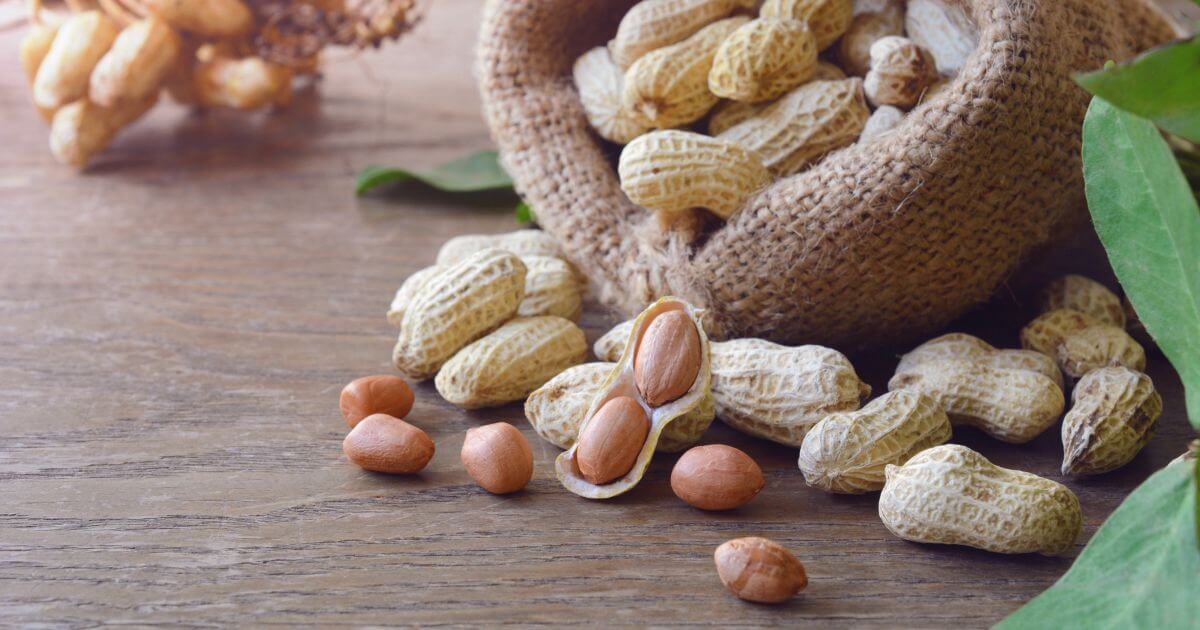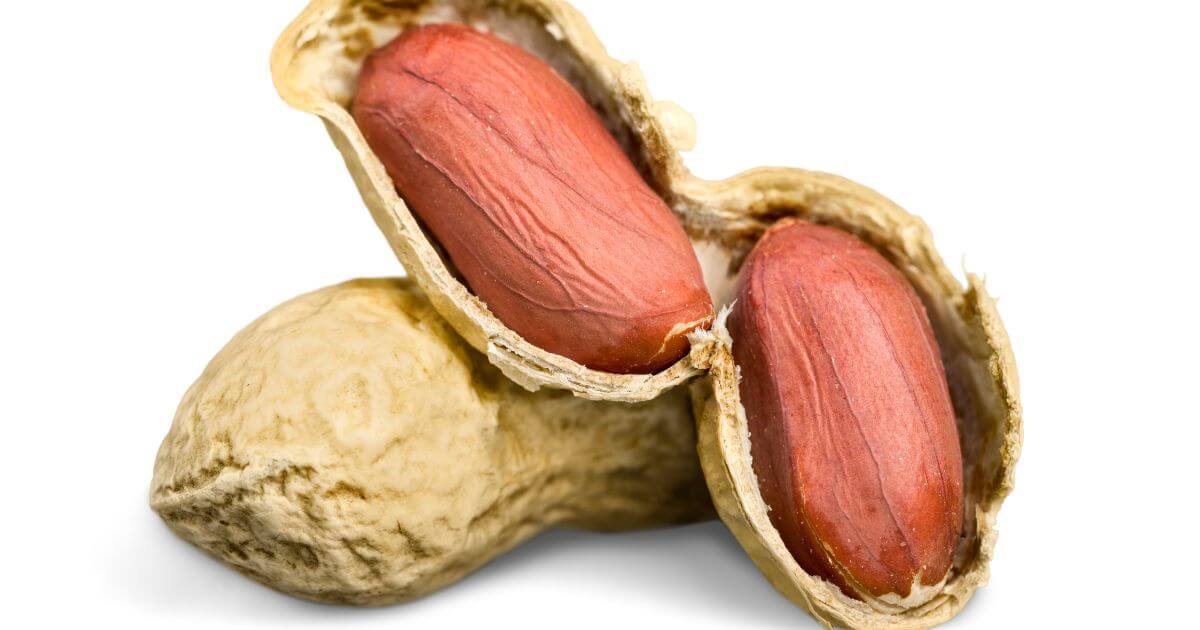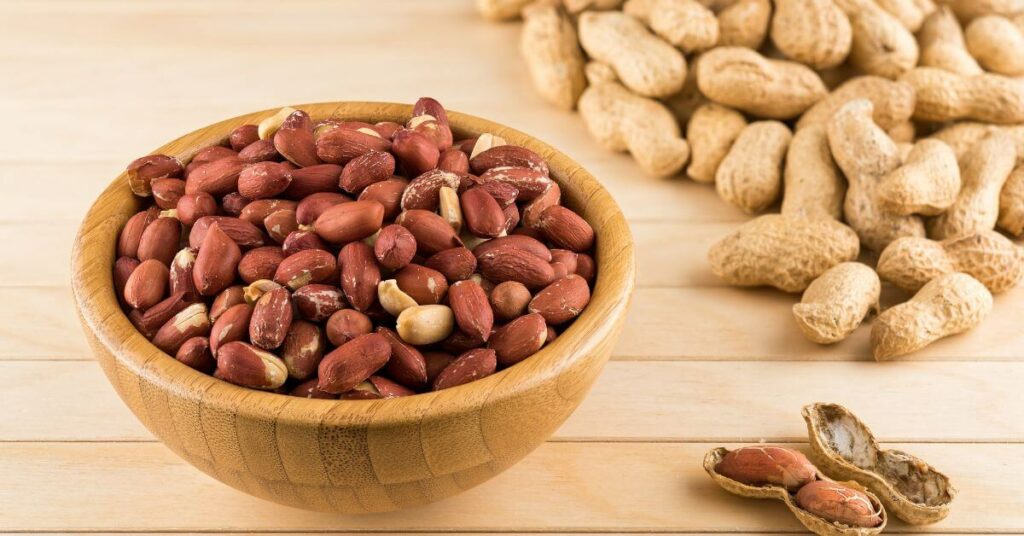When it comes to weight loss, many people are constantly searching for the perfect foods to incorporate into their diet. One such food that often sparks debate is peanuts. Are peanuts good for weight loss? While peanuts are a popular snack, there is conflicting information about their impact on weight.
Many people wonder if peanuts are good for weight loss. It is a common misconception that all nuts are high in fat and should be avoided when trying to shed pounds. However, research suggests that peanuts can benefit weight loss when consumed in moderation. This article will analyze the nutritional value of peanuts, their potential weight loss benefits and downsides, the optimal amount for weight loss, and how to incorporate them into a healthy diet.
Table of Contents
Nutritional profile of peanuts
Peanuts are legumes, not true nuts, that are high in protein, fiber, magnesium, phosphorus, copper, manganese, and vitamin E. Here is the nutritional breakdown for 1 ounce (28g) serving of roasted, lightly salted peanuts:
- Calories: 176
- Fat: 15g
- Protein: 7g
- Carbs: 6g
- Fiber: 3g
Peanuts contain mostly monounsaturated and polyunsaturated fats, which are considered the “healthy” fats compared to saturated and trans fats. Peanuts have nearly half their fat as oleic acid, a heart-healthy monounsaturated fat similar to olive oil.
A good source of arginine is peanuts, which are also an excellent source of nitric oxide, which helps blood vessels dilate and aids cardiovascular health.
How peanuts affect weight loss

Peanuts are packed with nutrients like protein, healthy fats, and fiber that can support weight loss efforts. But with their high-calorie density, peanuts are also easy to overeat, which can hinder weight loss. Used strategically in moderation, peanuts provide several weight loss benefits you may not have expected from a high-fat food.
Keep your stomach full
Peanuts are a nutritious and satisfying snack that can support weight loss goals. One key reason is that peanuts keep your stomach full for a longer period of time. Because they are high in protein and fiber, they slow down digestion and promote satiety.
Peanuts help maintain and build lean muscle mass by supplying an essential nutrient. Approximately 7 grams of protein are contained in each serving of peanuts. Protein can help curb hunger cravings and prevent overeating when included in meals and snacks.
In addition to protein, peanuts are also rich in fiber. Just one serving of peanuts provides around 2 grams of fiber. Fiber takes longer to digest, which means it stays in the stomach for a longer time, keeping you feeling fuller for longer. This can help prevent sudden spikes and drops in blood sugar levels, reducing hunger cravings and promoting weight loss.
It is important to pay attention to portion size when eating peanuts for weight loss. While peanuts are nutritious, they are also high in calories. A 1-ounce serving of peanuts contains roughly 160 calories. Incorporating peanuts into a balanced diet and pairing them with other nutrient-dense foods can help support weight management goals.
Reduces food cravings
One way peanuts help reduce food cravings is by stabilizing blood sugar levels. Unlike simple carbohydrates that cause a rapid drop in blood sugar levels, peanuts have a low Glycemic Index. This means they provide a slow and steady release of sugar into the bloodstream, preventing sudden spikes and crashes in blood sugar levels.
Balanced blood sugar levels play a crucial role in weight loss efforts. When blood sugar levels are stable, you are less likely to experience intense hunger pangs and cravings for high-calorie, sugary foods. Instead, peanuts provide long-lasting energy, helping you to feel satiated for longer periods.
Additionally, peanuts are packed with protein and healthy fats, making them a nutritious snack choice. Protein increases feelings of fullness, reducing the desire to snack excessively. The combination of protein and healthy fats in peanuts helps keep you satisfied and can curb constant food cravings.
Full of healthy fats
In addition to being a satisfying snack, peanuts are also one of the most healthy fat sources. These little legumes are a rich source of monounsaturated fatty acids (MUFAs) and polyunsaturated fatty acids (PUFAs), both of which have been linked to numerous health benefits.
The MUFAs and PUFAs in peanuts have anti-inflammatory properties, promoting overall health and reducing chronic diseases such as diabetes and heart disease. These fats help to reduce inflammation in the body, which is often a key driver of obesity and other health problems. By including peanuts in your diet, you may be able to lower inflammation levels, making it easier to achieve and maintain a healthy weight.
One of the potential benefits of consuming peanuts is their ability to improve the body’s ability to use stored fat as energy. This is especially beneficial for those looking to shed some pounds, as it can aid in weight loss goals.
Low-calorie intake
One of the reasons peanuts can be beneficial for weight management is their rich fiber and protein content. Both of these nutrients play a key role in making you feel full and satisfied, which can prevent overeating and help maintain portion control. Additionally, the healthy fats found in peanuts provide a source of energy and can be a part of a balanced diet.
Not only can peanuts aid in weight loss efforts, but they also offer other health benefits. Research has shown that consuming peanuts, peanut butter, and other peanut products can lower the risk of heart disease and improve blood sugar levels. Furthermore, the unsaturated fat content in peanuts is known to be heart-healthy, promoting the health of blood vessels and reducing the risk of cardiovascular disease.
How to add peanuts to a weight loss diet?
Here are some simple ways to incorporate a weight-loss-friendly portion of peanuts into your daily meal plan:
- Sprinkle lightly salted peanuts on top of salads for extra crunch and protein. Keep it to about 1 ounce.
- Add a quarter cup of unsalted peanuts to a veggie and rice stir fry.
- Try peanut butter or powdered peanut butter on an apple or whole-grain toast for breakfast. Stick to 1 tablespoon.
- Make a DIY trail mix with 1-ounce peanuts, pumpkin seeds, and dried cranberries or cherries.
- Roast lightly salted peanuts and enjoy as an afternoon snack. Measure out a single serving of 1-2 ounces.
- Add chopped peanuts to plain, nonfat Greek yogurt with fresh fruit for a protein-packed breakfast.
- Blend peanut butter powder into smoothies. Use no more than 1-2 tablespoons per smoothie.
Optimal peanut intake for weight loss
To reap the appetite-suppressing benefits of peanuts without going overboard on calories, the recommended daily serving for weight loss is:
- Women: Studies point to an optimal peanut intake of around 1 ounce or 28 grams daily. This gives roughly 170 calories from peanuts to account for in your daily meal plan.
- Men: Research shows men can experience good weight loss results with slightly larger peanut portions. Up to 1.5-2 ounces or 42-56 grams of peanuts per day, providing 250-300 calories was linked to weight loss in men without cutting too many calories. Men generally have higher daily calorie needs.
This provides 100-200 calories of peanuts per day. You can adjust this amount based on your daily calorie needs and goals. Spread this out into 2-3 mini peanut snacks throughout the day for the best results.
How to consume peanuts for weight loss?

Peanuts can be eaten in different ways. In some places, they are eaten raw. They can also be roasted or boiled. Another option is to have them as peanut butter or peanut oil. If you want to lose weight, here are some ways to consume them.
Peanut butter
Peanut butter is a versatile and delicious food that can be beneficial for weight loss when consumed in moderation. There are two main types of peanut butter: regular and natural. Regular peanut butter typically contains added sugars and hydrogenated oils, which can hinder weight loss efforts. On the other hand, natural peanut butter is made solely from ground peanuts, making it a healthier option.
The type of fat found in peanut butter is a key factor in its weight loss benefits. It is also packed with nutrients that can support weight loss. When incorporating peanut butter into a weight loss plan, portion control is essential. While peanut butter is nutritious, it is also calorie-dense. A recommended serving size is 1-2 tablespoons twice or thrice a week, depending on your specific calorie intake and weight loss goals.
Mid-day snack
Incorporating peanuts into your mid-day snack routine can be a simple and effective way to support your weight loss goals. Peanuts are incredibly versatile and can be consumed in various ways, such as raw, roasted, or boiled. They can also be incorporated into other ingredients, such as salads or stir-fries, to add flavor and texture to your meals. This diverse range of consumption options ensures that you won’t get bored with your snacks.
Just be sure to monitor your portion sizes and opt for unsalted or lightly salted peanuts to keep your sodium intake in check. Enjoying a serving of peanuts as a mid-day snack can help you stay satiated and on track with your weight loss journey.
Adding peanuts to protein-rich foods
Adding peanuts to salads is a simple yet effective way to boost your protein intake. A handful of peanuts can be sprinkled over greens, along with grilled chicken or fish, creating a filling and nutritious meal. The combination of protein from the meat and peanuts can help control your appetite, keeping you satisfied for longer and reducing the urge to snack on unhealthy foods.
The bottom line: are peanuts good for weight loss?
We conclude that Peanuts are good for weight loss. Incorporating peanuts into a balanced diet can support weight loss goals. With their fiber, protein, and healthy fat content, peanuts can help satisfy you and provide valuable nutrition benefits. As always, portion size is important, so be mindful of the calories consumed. Incorporate peanuts as a healthy snack or in recipes to enjoy their weight loss and health benefits.
